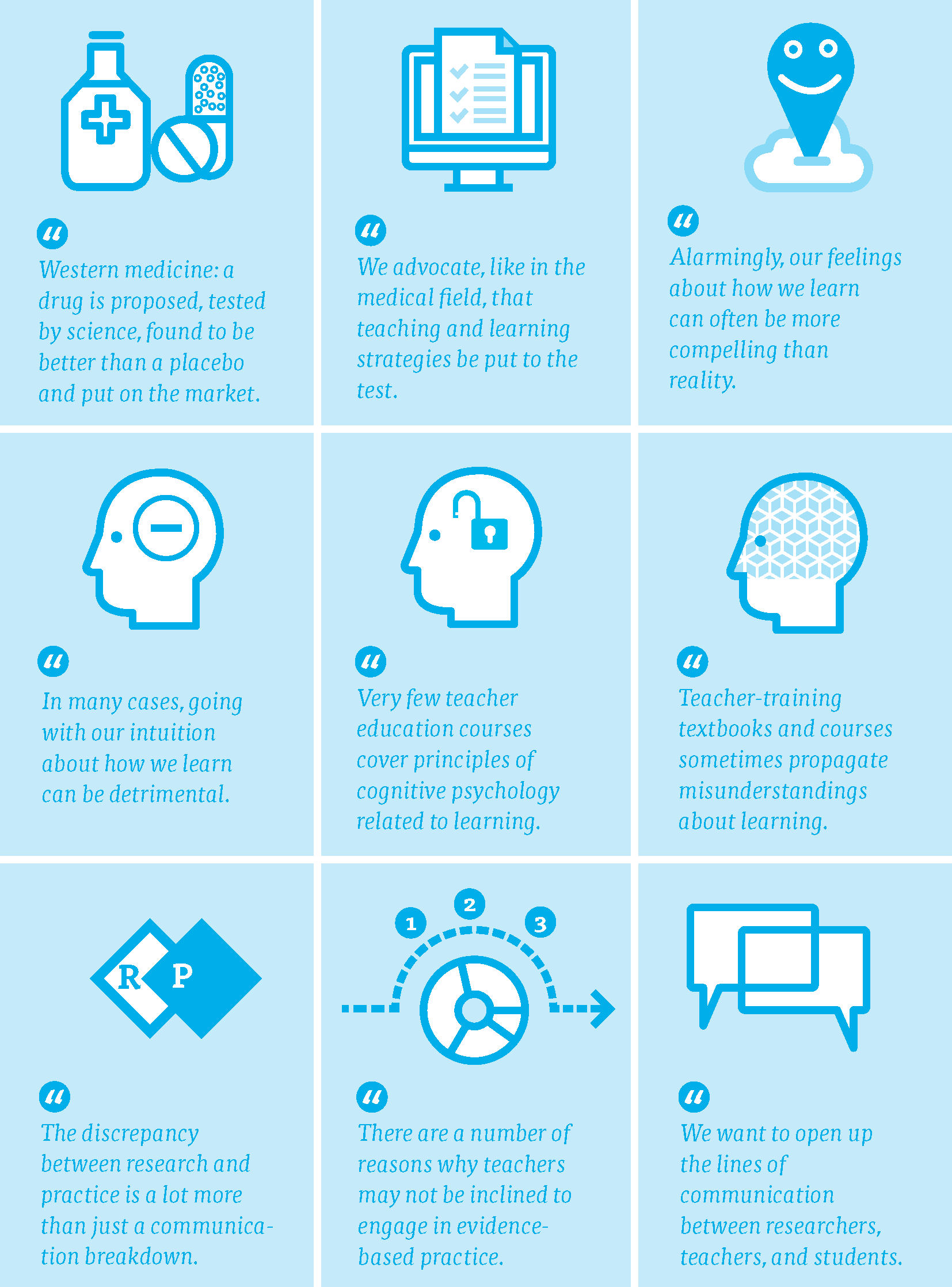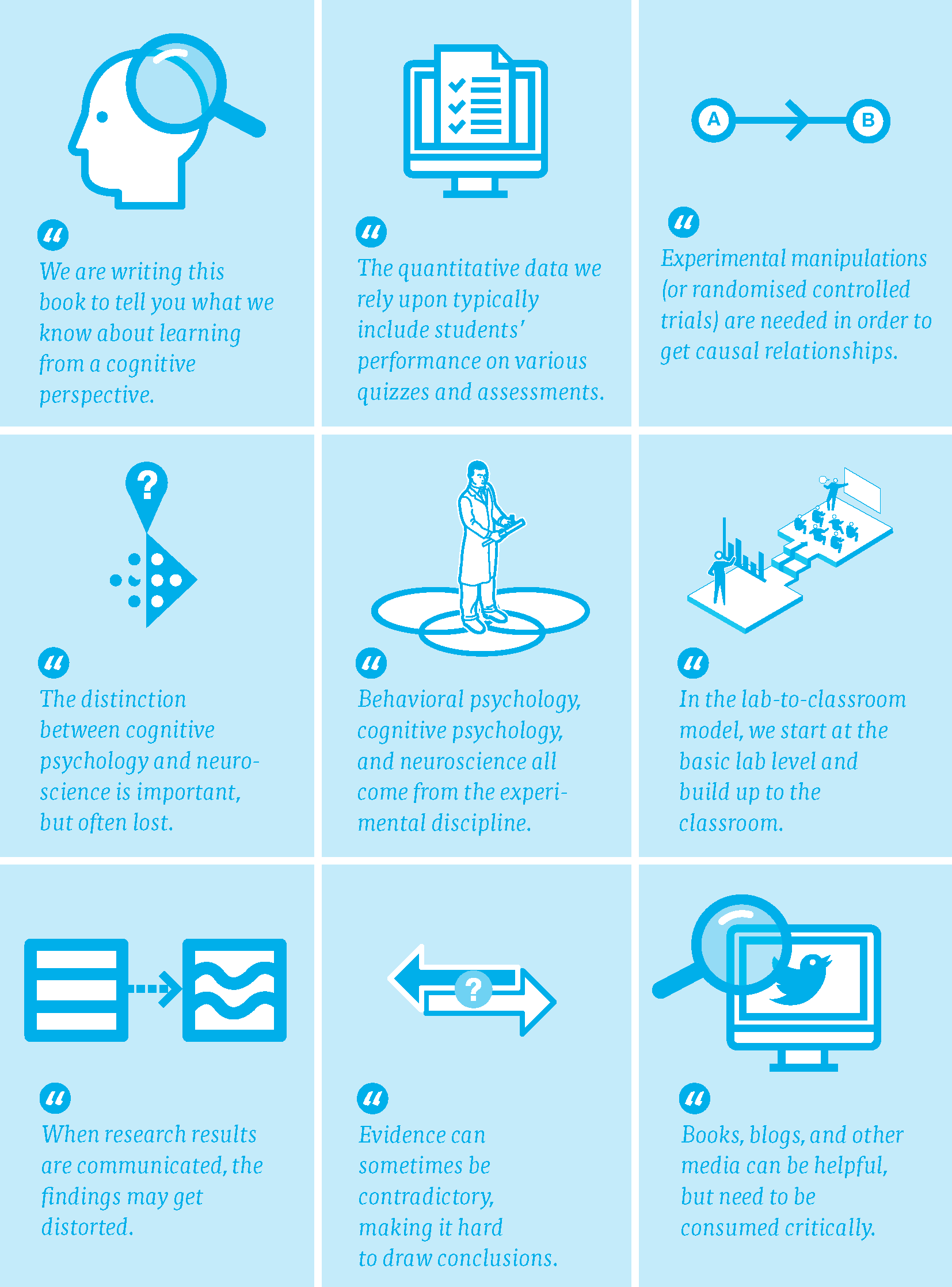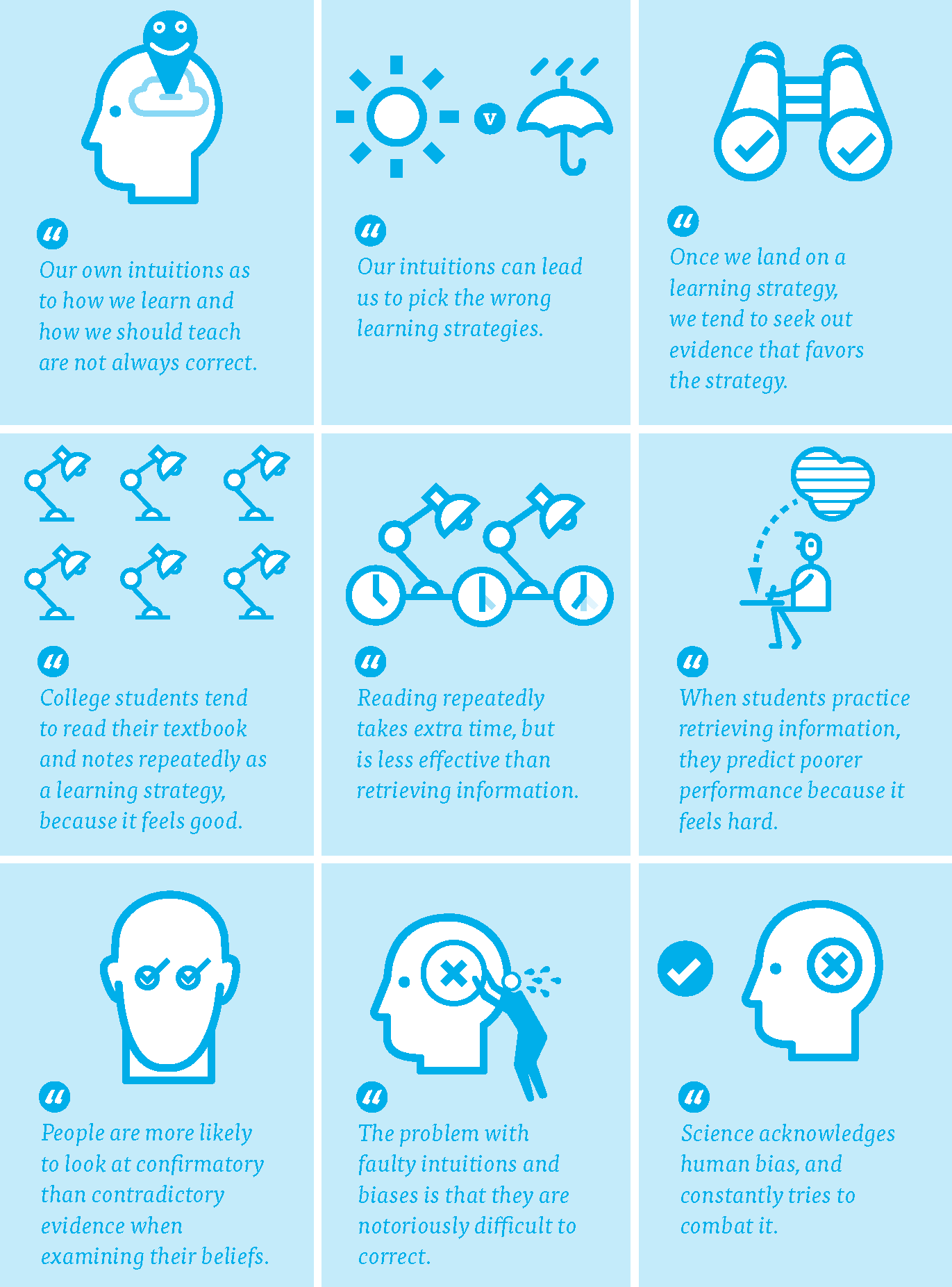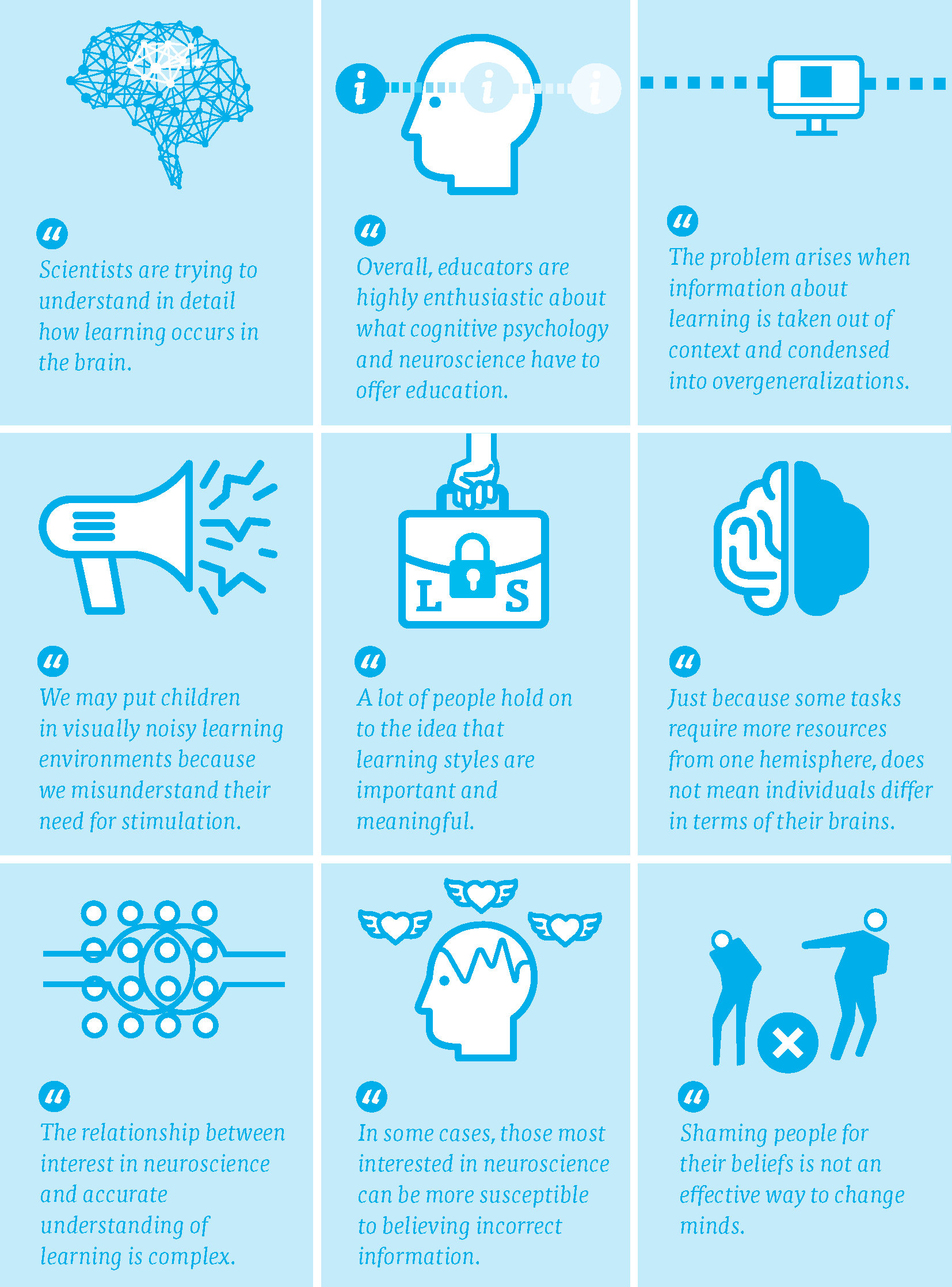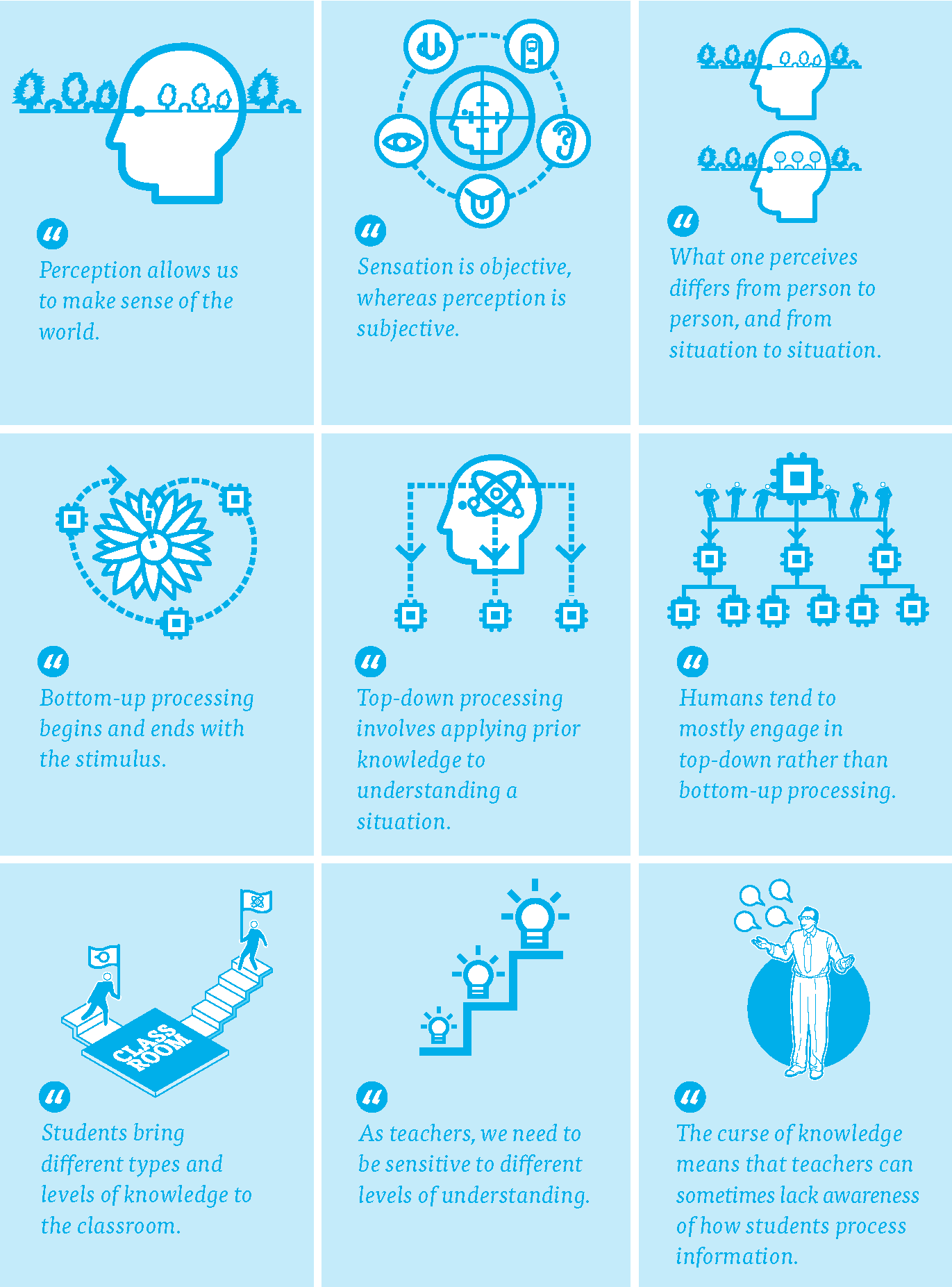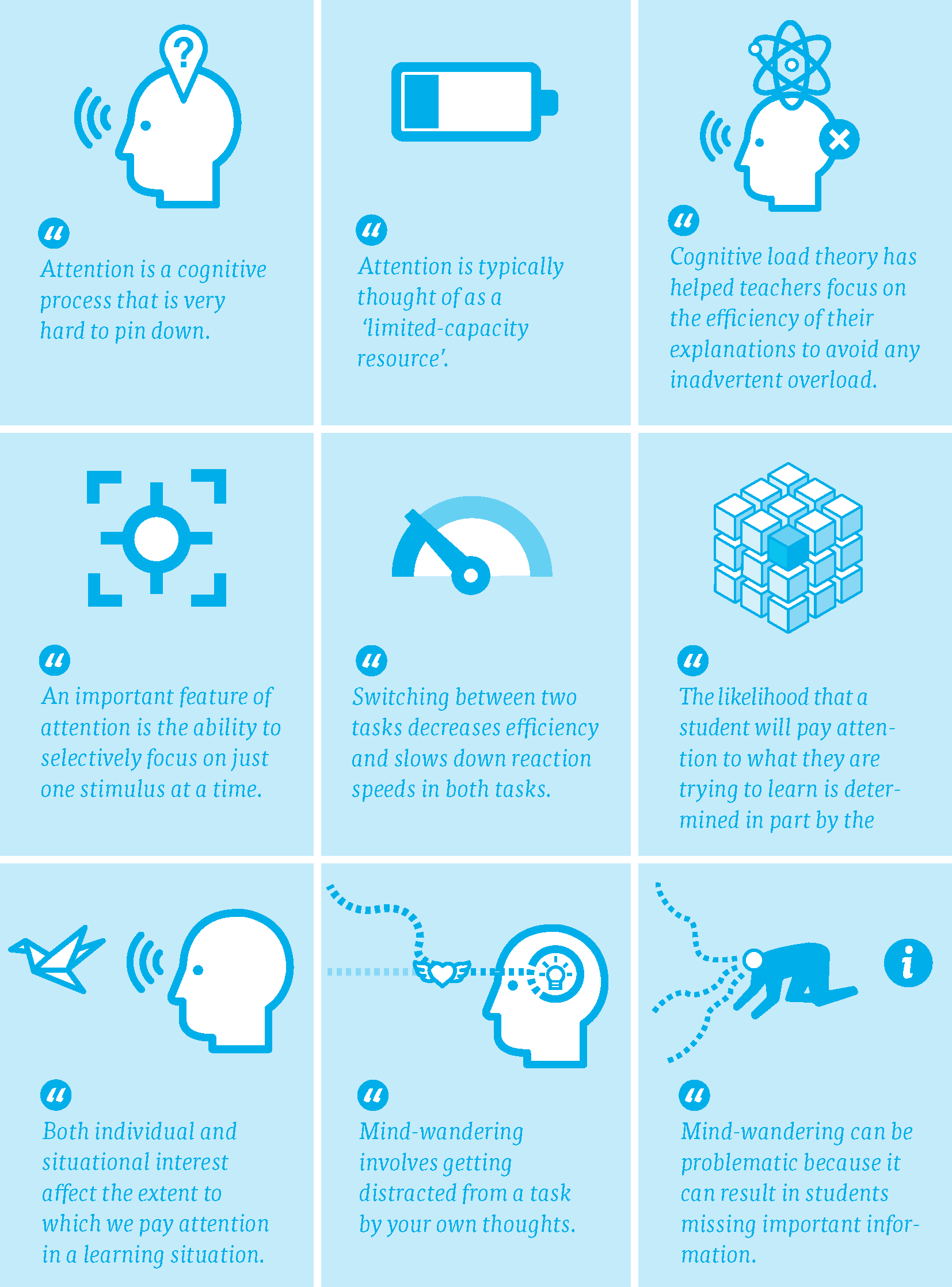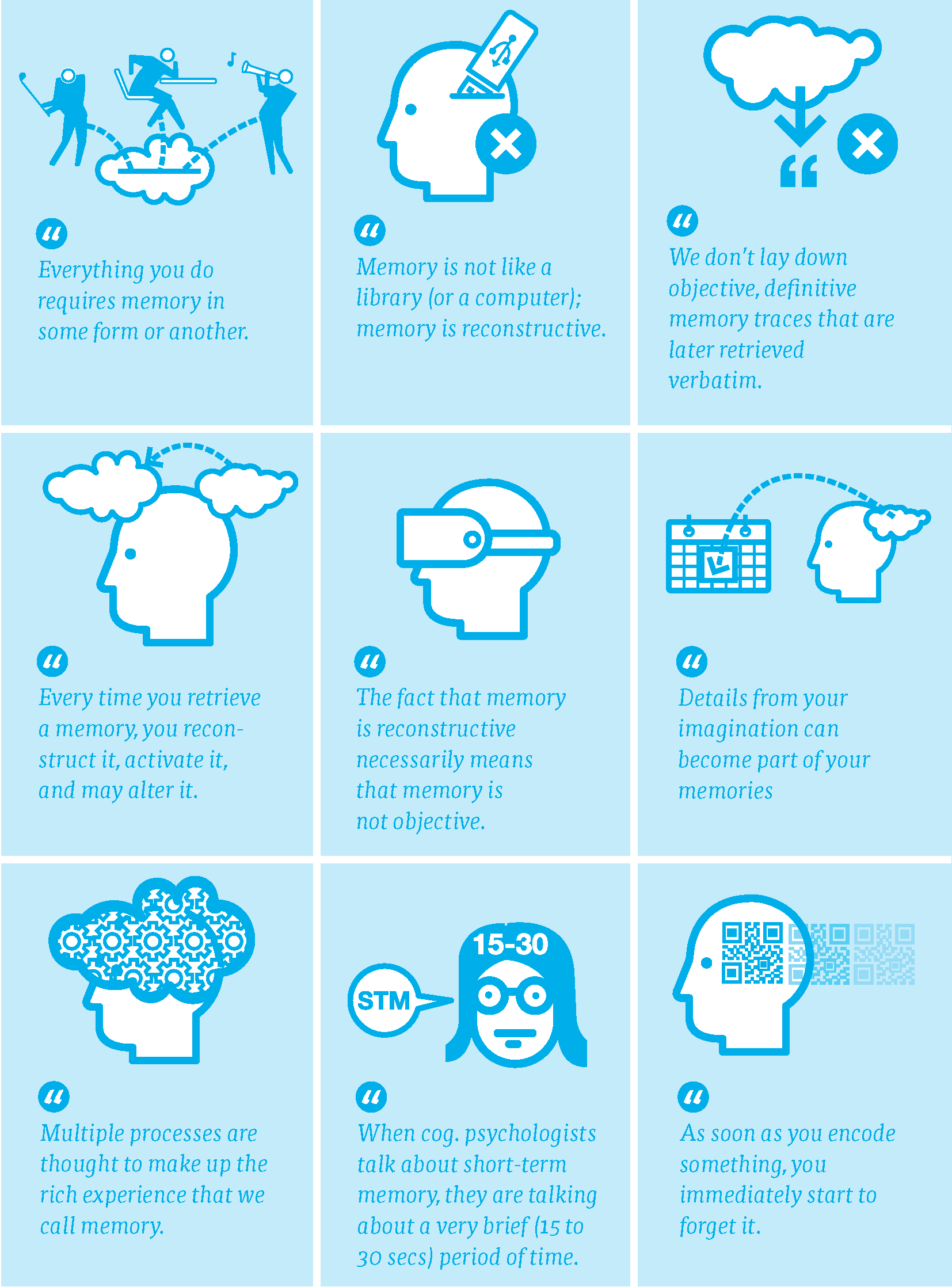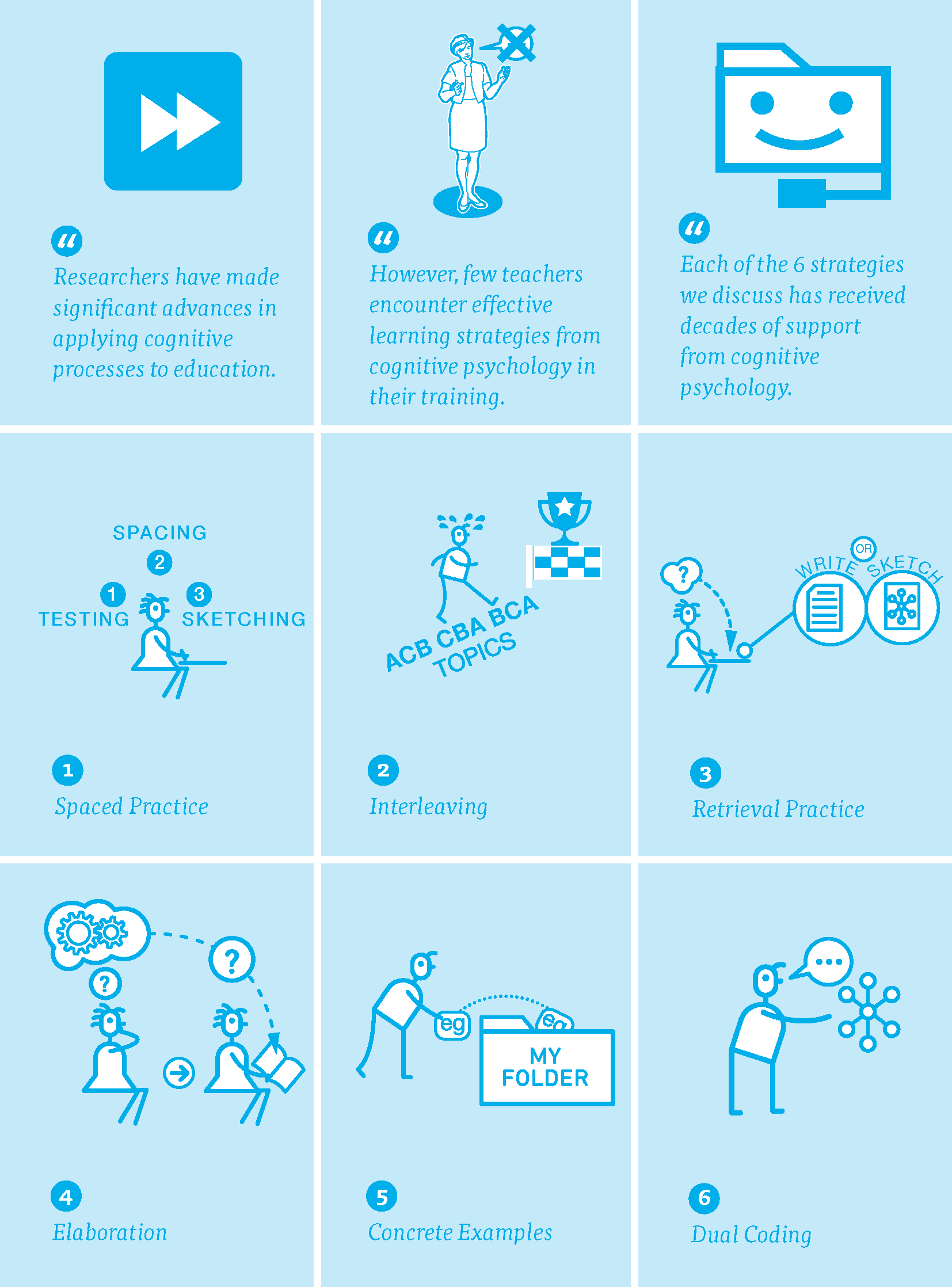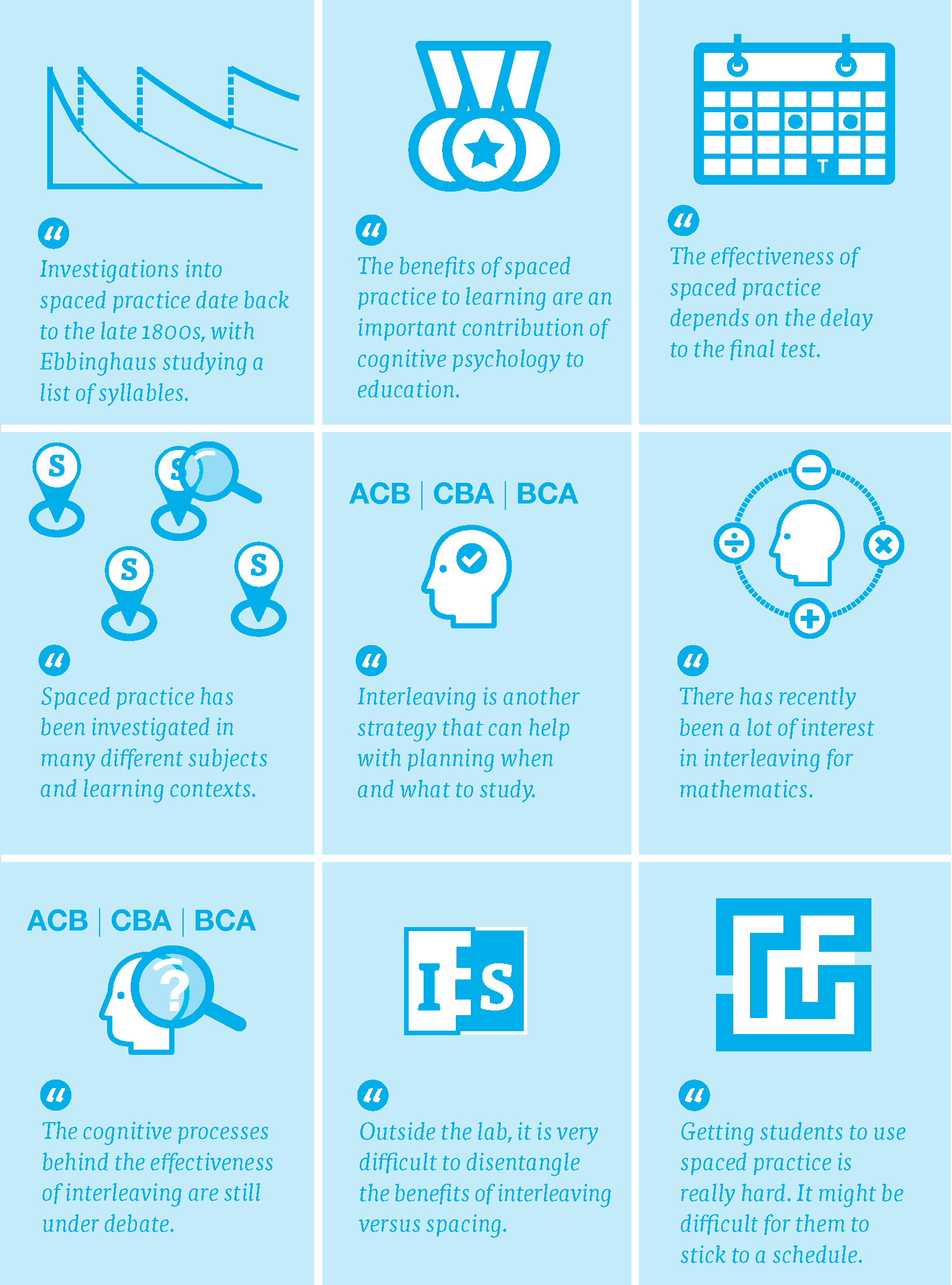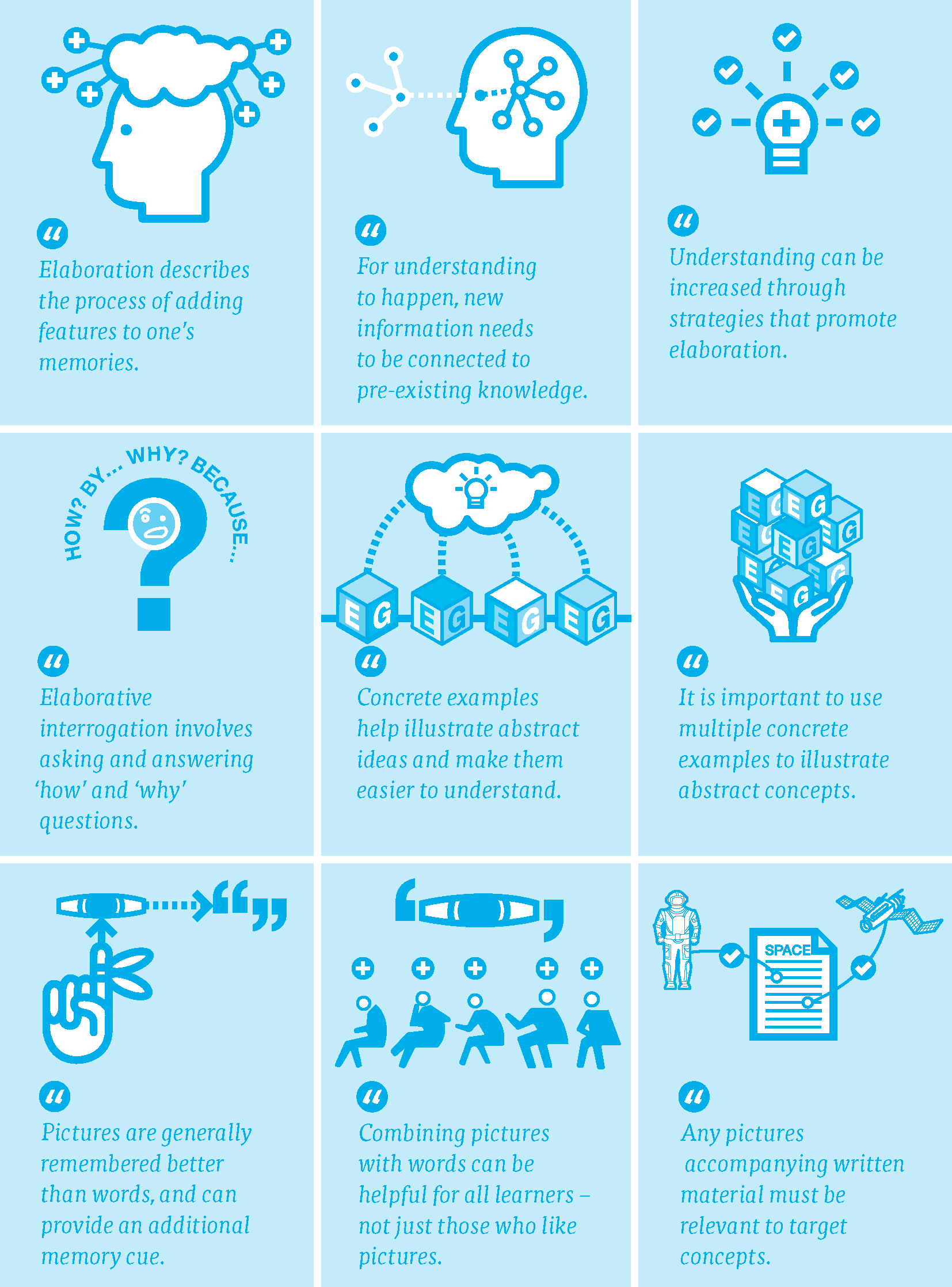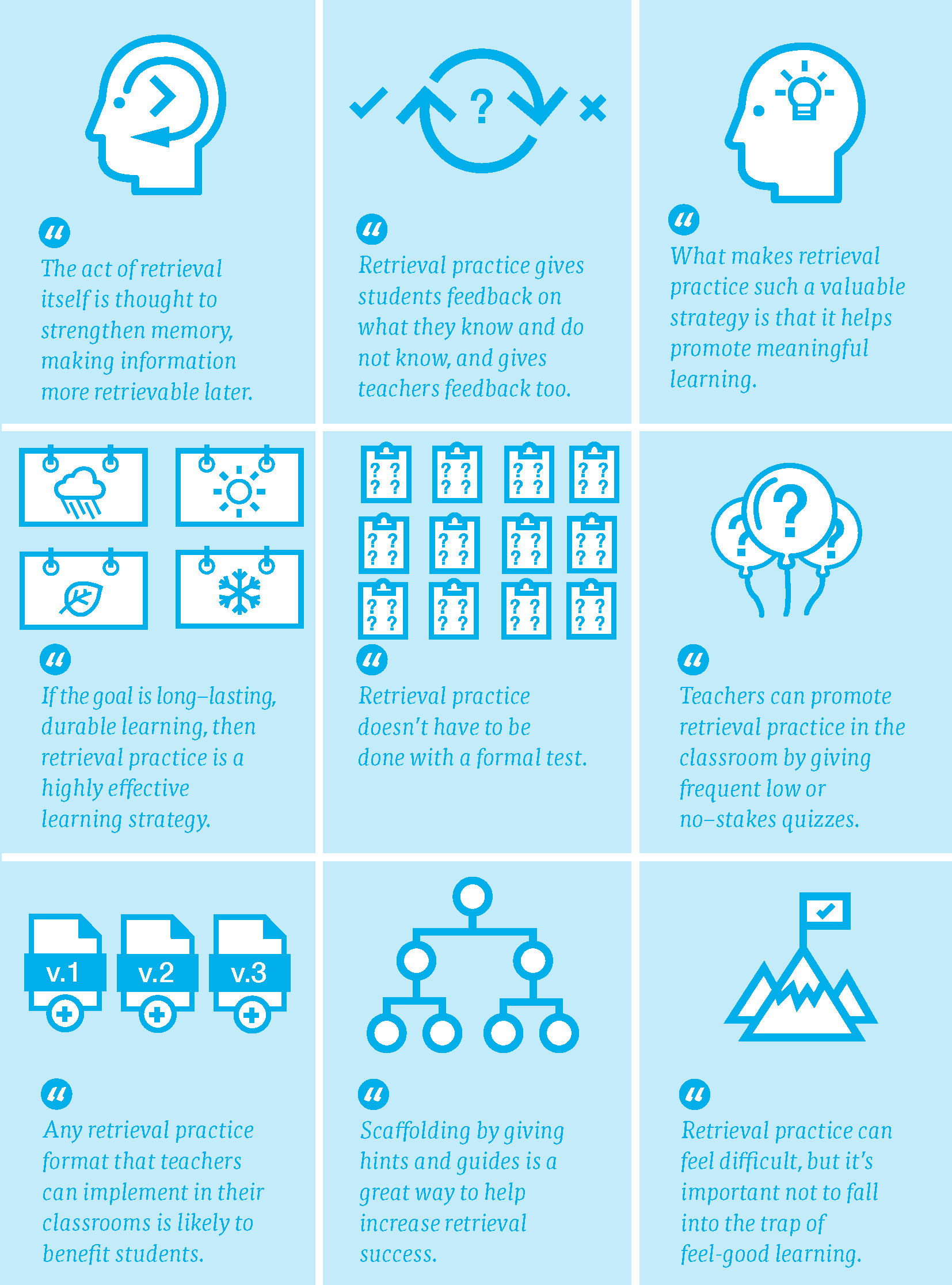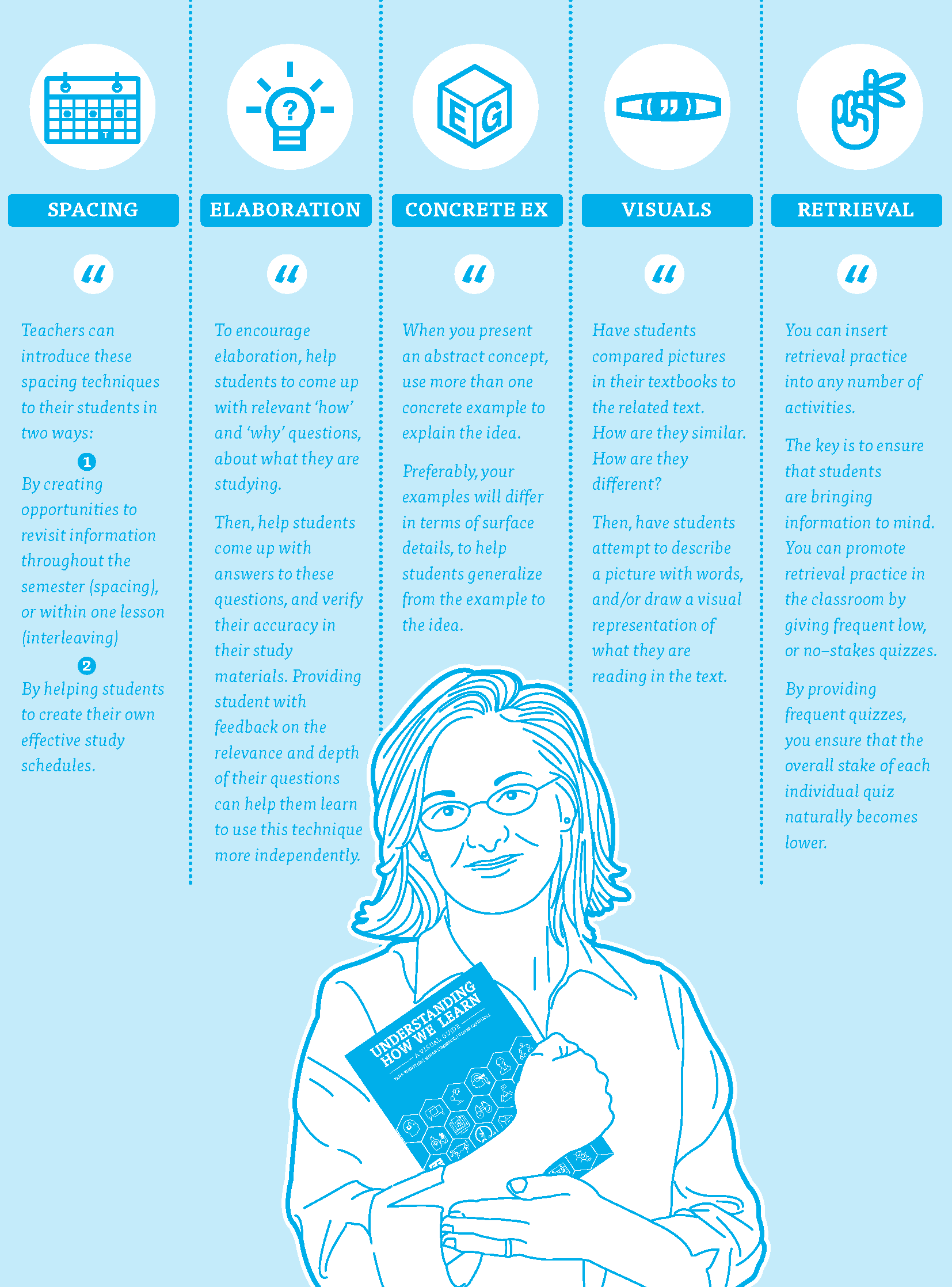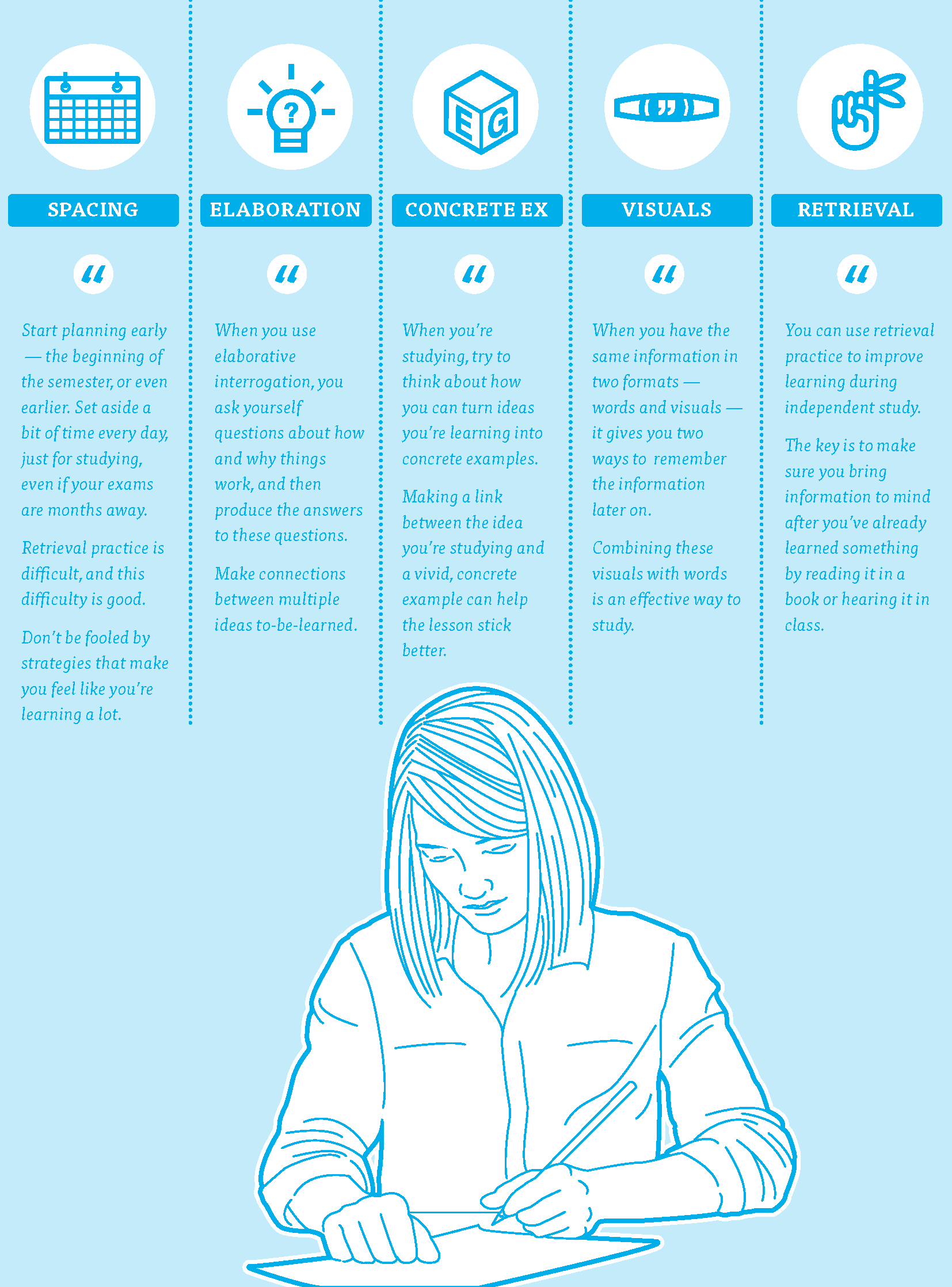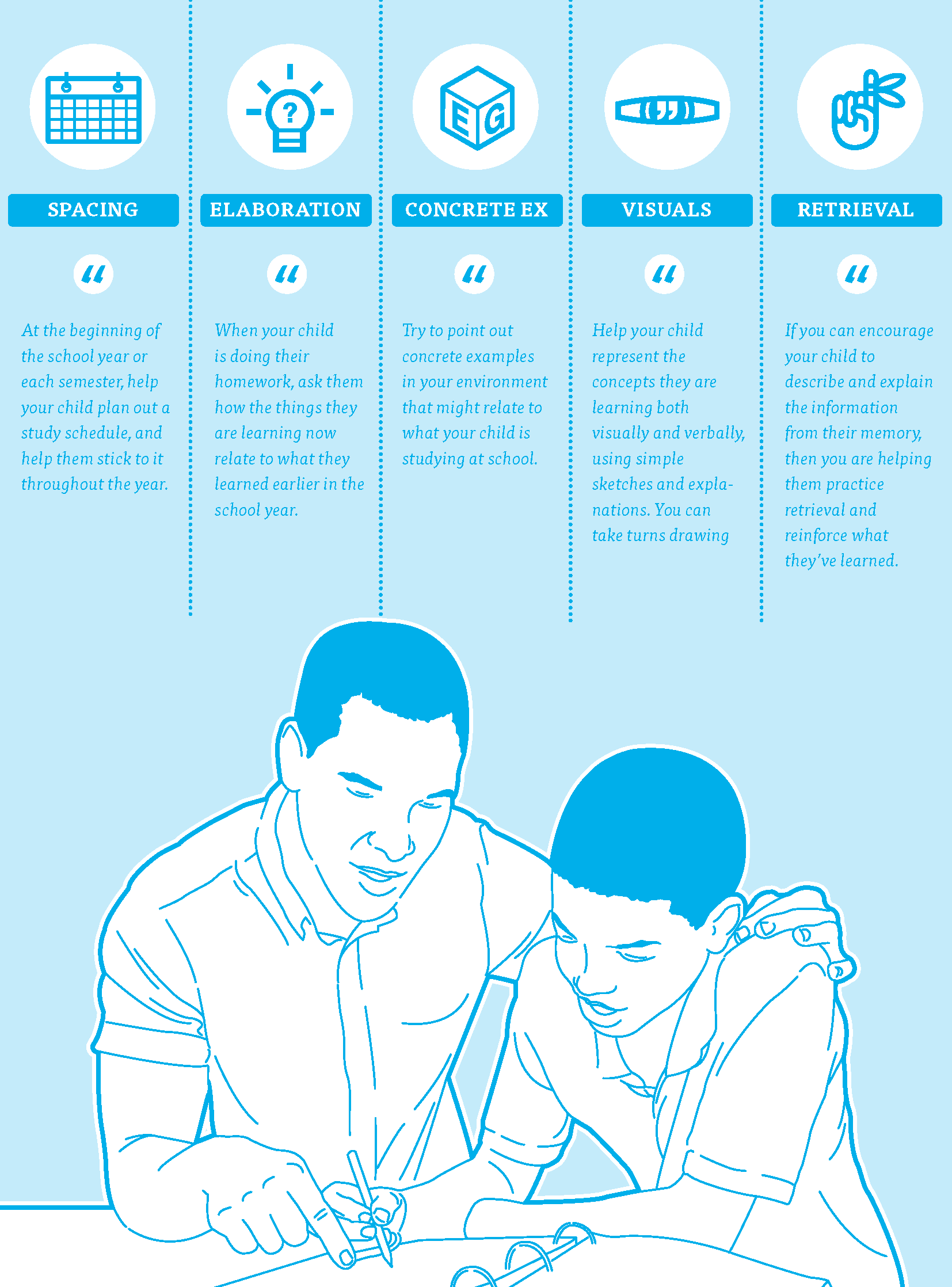Understanding How We Learn: A Visual Guide
Written by Dr Yana Weinstein (Jude Weinstein-Jones) and Dr Megan Sumeracki. Book design and illustrations by Oliver Caviglioli. Published by David Fulton/Routledge, August 2018 (Copyright 2019).
Educational practice does not, for the most part, rely on research findings. Instead, there’s a preference for relying on our intuitions about what’s best for learning. But relying on intuition may be a bad idea for teachers and learners alike.
This accessible guide helps teachers to integrate effective, research-backed strategies for learning into their classroom practice. The book explores exactly what constitutes good evidence for effective learning and teaching strategies, how to make evidence-based judgments instead of relying on intuition, and how to apply findings from cognitive psychology directly to the classroom.
Including real-life examples and case studies, FAQs, and a wealth of engaging illustrations to explain complex concepts and emphasize key points, the book is divided into four parts:
Evidence-based education and the science of learning
Basics of human cognitive processes
Strategies for effective learning
Tips for students, teachers, and parents.
Bulk order discounts are available to schools and organizations who would like to purchase 10 or more copies. Contact Routledge today to discuss this further.


